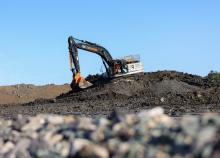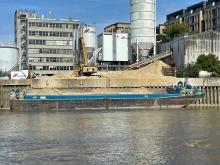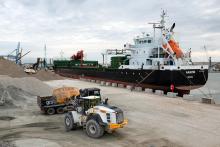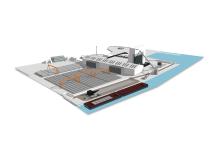ISC, part of the materials group GRS, is now the principal contractor of the River Road waste scheme, which is a central part of the Cory Group’s project. The contract will see ISC build a new energy-from-waste (EfW) plant In Barking that will divert 550,000 tonnes of non-recyclable waste from landfills annually and generate electricity for the equivalent of 176,000 homes.
“We are proud to be leading such an important project that showcases our civil engineering capabilities as principal contractor. The Riverside 2 development is a transformative project, particularly in the areas of sustainability and innovation, and it’s a great one for the team to be part of,” said Darren Quinton, managing director of ISC.
“We’ve wasted no time in getting onto site at River Road for site preparation and demolition of existing structures, and our team is fully committed to delivering the project to the highest standards our customers have come to expect of ISC.”
The new project will involve updating current site facilities, reactivating a safeguard wharf and delivering a new purpose-built industrial WTS building on a designated Safeguarded Waste Site. This will involve reconstructing Rippleway Wharf to allow container stacking and the loading of barges.
This change will move waste operations from road-to-river to road-to-river, reducing the number of waste vehicles on the road.
Cory Group processes waste for nine boroughs in London and the South East. The new Barking will provide additional processing capacity for waste destined for Cory’s Riverside 2, currently under construction in Belvedere.
Taking a leaf from Cory Group’s use of river barges to transport waste, ISC will use Thames barges to remove most of the demolition waste, spoil and dredged material for recycling, as well as for the delivery of aggregates and other construction materials.
“We are pleased to be working with ISC on this project, which will bring over £50 million of investment into Barking and maximise the potential of the site,” said Chris Gridham, development director at Cory.
“As well as providing essential capacity for London’s non-recyclable waste, this project will also allow us to reduce the environmental impact of the site on local ecology, reduce pollution and, through the use of the River Roding for transport of materials, substantially improve air quality across London.”








